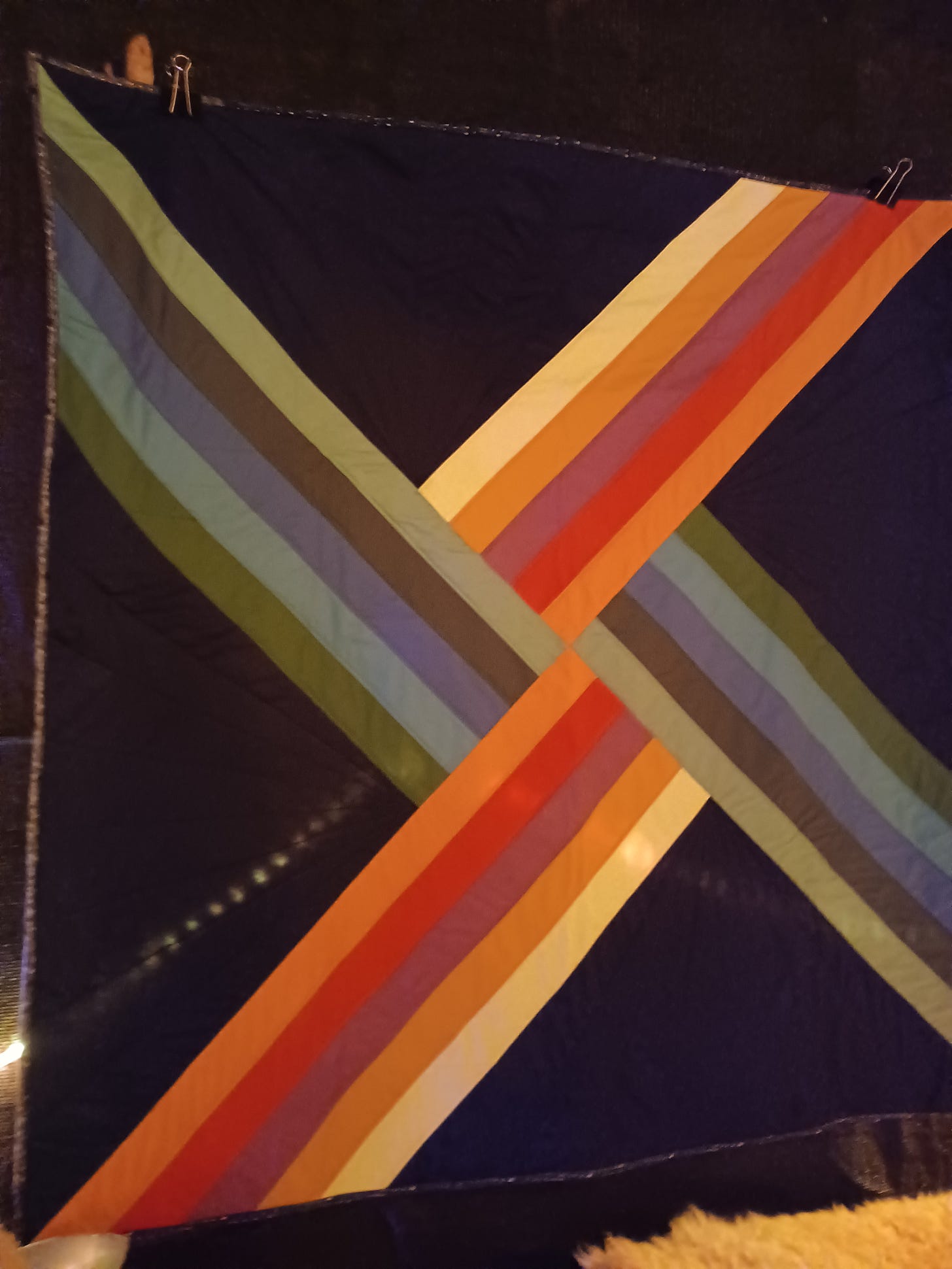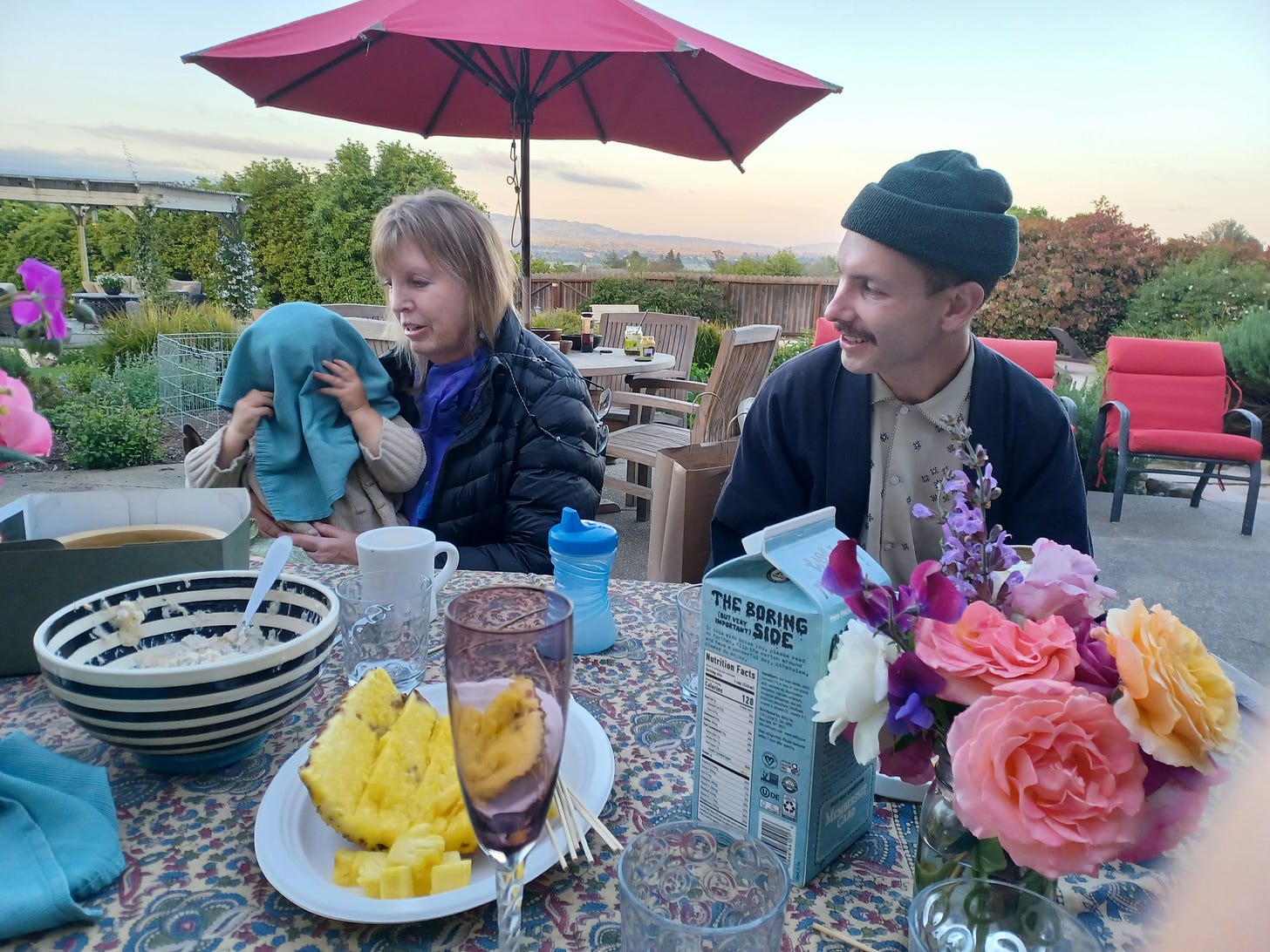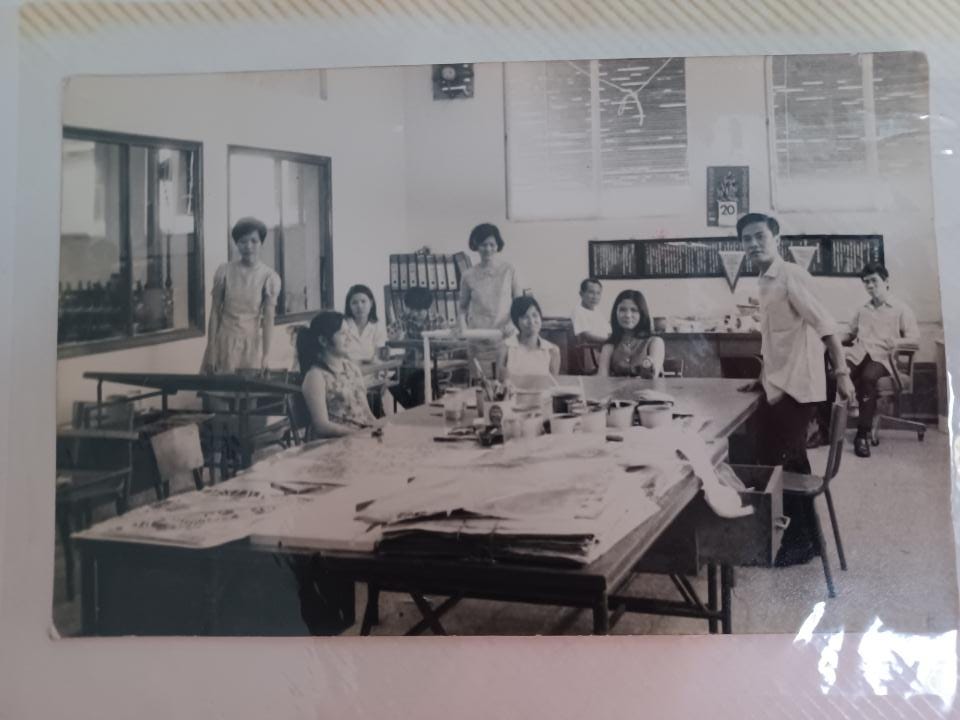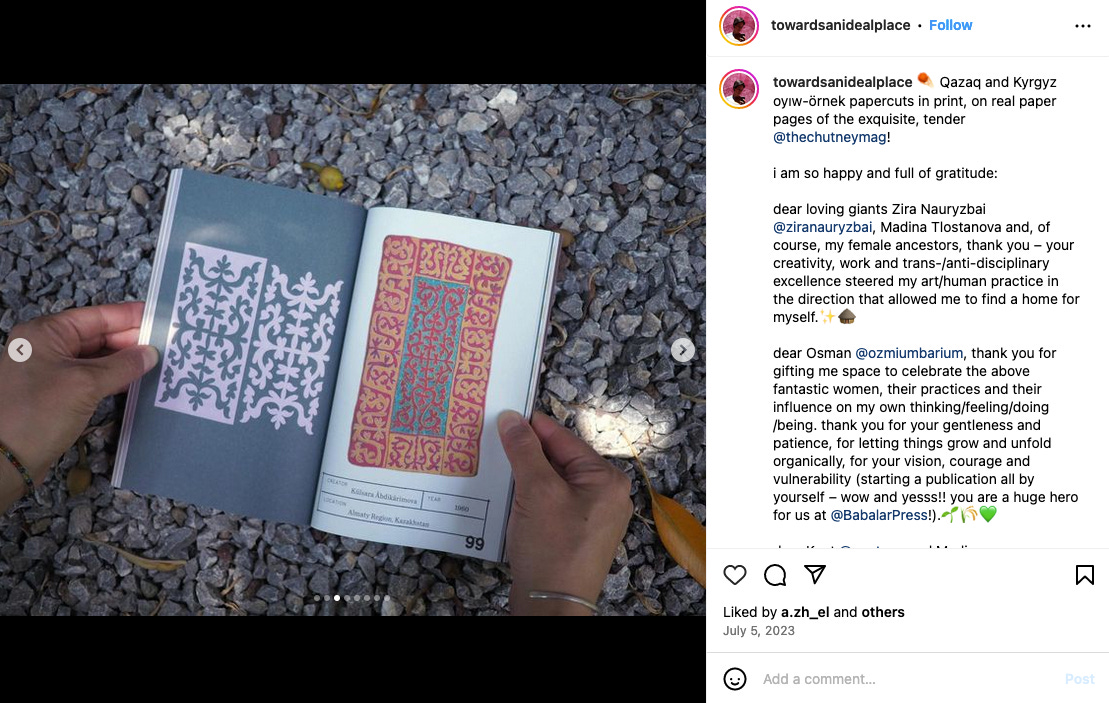Welcome to Wandering Grace. I will be sharing essays exploring the themes of place and (be)longing every other Thursday, and sometimes bonus snapshots from the road on the weeks in-between. Read more about the project here. See an archived list of essays in-order here.
I have been revisiting the Enneagram, and lol maybe that last essay on rest was just a pep talk to my 4 self who likes to think about her feelings and feel things about her thoughts about her feelings and then think more about her feels…when she should really just go walk the dog or feed the kids, except right now she has no dependents to her name. And maybe that’s why I’m afraid of living alone, even though that’s the ‘next right action’ for this next season…
***
My residency at Bellweather is bookended by weekends in Sonoma County, where Jiordi grew up and where his parents and sister still live.
We are ‘leaving the land’1 early because brontë has a fundraiser to emcee, because there are Mother’s Day celebrations planned with Jiordi’s family, and because Jiordi wants to overlap with co-conspirator Bayo Akomolafe while he’s in town giving a commencement speech at CIIS.
Leaving the land feels like multiverse jumping because Bellweather is such an immersive off-grid(ish) experience so different from modern city life.
The first stop away from Bellweather is directly to the Weaving Earth anniversary fundraiser. I’m grateful that brontë and Jiordi’s friend Ameiya, who helped muck azolla with us, is also along for the ride, and so I know at least one other person here. We eat our tacos on a bench in a corner of the event and talk about whiteness in America while people-watching. We participate in brontë’s bird trivia. A murder of crows, a congress of ravens, a scold of jays.
When Ameiya leaves after dinner and trivia, I’m left to my own devices — I watch the little documentary movie, I listen to the little speeches, I take a look at the silent auction items.
I hover in and out of discomfort during the fundraising event. It’s hard to pinpoint whether this is because I’m not in the relational weave of this community or if I’m having trouble re-entering a more social space with more sensory input after three weeks in the mountains. Or if: there’s something about this crowd, this culture, this space…that is more white or more wealthy than I know how to codeswitch into in general — especially if I don’t have a clear sense of my role here (except as tagalong or interloper).
***
I was more mentally prepared for rural living than for these weekend excursions into relatively-posh surroundings:2 getting treated to a fancy meal at Khom Loi Thai restaurant in Santa Rosa, taking advantage of the in-home sauna and soaker tub in a guest bathroom.
On Sunday evening, Jiordi’s family is having a Mother’s Day dinner, and I am invited to join. They know my mom has passed, and they’ve been sweet about it. I have asked a couple friends to check in with me on the morning-of, but ever since my swim in the lake of the azolla, I feel okay about Mother’s Day this year, too.
Jiordi’s parents have three kids and they all live within driving distance in Northern California, so they are all here for tonight’s dinner. There is currently one grandchild in the family: JJ lives next door to her maternal grandparents, and the paternal grands have had the means, ability, and desire to relocate to the same city to be close enough to be intimately involved in caretaking.
I am struck by the intactness of it all. Four doting grandparents actively involved in her life; what a lucky child! Everyone’s still married, and everyone gets along with everyone else’s in-laws; what?!
I’m more familiar with diasporic families, with divorced families, estranged families, and families with a lot of loss woven throughout. Growing up, I only knew my one maternal grandma. My paternal grandmother died when I was in second grade, and I didn’t know either of my grandfathers. Didn’t hear much about their lives either — part of the quiet tongues of refugees who deem dwelling in the past disorienting to their present-day lives.
***
In the months that follow, I think about this intactness a lot, trying to formulate correlations between privilege and access to intactness — which in itself is a kind of privilege.
There is envy and frustration beneath the bitterness. There is grief beneath the mental acrobatics, the whirring brain trying to understand the mechanics that might reproduce the equation that might lead to wholeness.
It feels too simple to attribute the intactness to class. It is an oversimplification to correlate wealth to mobility — in this case I mean the actual ability to move where you want to move and when. But to elide the role that wealth plays in being able to preserve intactness would also be a disservice to all those grieving ruptures in their lineages.
In my essay “Speeding Towards Trust,” I asked:
Who gets to choose — who really gets to choose — where they live, and why, and on their own timelines? Who gets to feel safe where? And at what costs — literal and metaphorical?
Who gets to stay where they feel most connected to and interwoven with culture and land — and who gets to make that choice in ways that are fully supported, not only familially but also structurally and systemically?
Wealth affords you mobility, in that it affords you choice.
In order to afford more choice, we sometimes try to access wealth via chasing class mobility — which often asks of us to move away from our communities: for college, for jobs, for the chance to escape cycles of poverty coded into neighborhoods and culture — so we can become someone else…3
I didn’t feel (m)any of these feelings in the moment, on Mother’s Day, with this family. Mostly what I felt was a gentle kind of awe. The surprise of remembering in my body what is possible. A bit of the relief and the stretch of it.
To experience it as a slice of the multiverse.
The sweetness of a farmer’s market strawberry after years of store-bought.4
The exhale of home after you’ve been on the move for so long, you’ve forgotten how to breathe.
***
In a ‘Lineages of Embodiment’ conversation series hosted by Prentis Hemphill, Zen priest Cristina Moon acknowledges that it’s a privilege to practice in an uninterrupted lineage. To be able to name teachers backwards in time to the original teachers and to the original texts.
So many of us experience holes, gaps, ruptures, erasure, interruptions while trying to find our spiritual homes. Cristina Moon shared about a woman who chose to train at her temple specifically to know in her body what an intact lineage, practice, and ecosystem look like and feel like. To be able to bring that back to her ‘broken’ lineages.
So many of us mend together beautifully stunning patchwork quilts of practices, pulling from multiple lineages, and whatever we can glean from whichever wisdom teachers we can find. To remember our wholeness when we’ve been trained to only feel our holes.
And furthermore: that our holeyness can also be holy.
***

This past winter, I took a 10-week course called Relational Reconstructions with Jeffrey Yoo Warren and Dri Chiu Tattersfield. The class explored “creative reconnection and immersive counter-archival practices.” Sometime last year, I realized that my role in the village of yore would have had something to do with being a keeper of family stories.5 This class allowed me to sink sweetly into that persona, as we engaged with story and memory and family artifact, with reverence and from our senses.
Our practices and modes of engagement wove relationship between us and the past in ways that restored agency to both us in the present and to the people/places/experiences of the past.6
These practices were alive with curiosity, and done in community. And oh so tender.
Guest artist Aisha Jandosova shared about her practice of re-existencia — embodying the doings our ancestors did as a way of spending time with them, as a way of re-membering and re-learning love for ourselves and for our people, and as a process of healing. She has a practice of making papercuts of patterns found in Qazaq and Kyrgyz wall carpets from the Almati region created by female ancestors. Tracing and retracing the patterns in ways that reveals to her the balance of designs where there is no clear foreground or background. Drawing this middle line, and holding both shape and shadow in mind at the same time, as a practice in embodying a ‘refusal of binary’.
Tracing the gaps as a way to trace the shapes, giving way to form and beauty over time.
***
I am drawn to Southern California because of family.
It is not nearly as direct as grandparents moving to be closer to a grandchild, as much as my brain wants it to make such easy sense. I have no blood relatives in the area.7 The pull is more mysterious than that: a sense of attraction to the possibility of family; friends who feel more like family than chosen family; the allure of living driving-distance to multiple temples that remind me of my dad, of hearing Cantonese at the grocery, of finding new hole-in-the-wall bahn mi spots.
It’s indirect. It’s me tracing a negative pattern in the fabric of my life without knowing what the positive image looks like yet.
In the absence of the class privilege and material resources to go straight there, I just hope I am disciplined enough to keep going for long enough for the dots to connect in hindsight and for the pattern to reveal itself to me.
"Leaving the land”…a funny phrase, that. Can we ever, really?
Eyes on the flotilla to Gaza to deliver aid to Palestinians who can’t leave their land during the ongoing violence of genocide, after having been forced to flee their land over and over and over again.
Class-hopping always feels like multiverse jumping to me: a reminder that such different day-to-day realities co-exist in our world. In the past, I’ve tried to reconcile them, tried to make them make sense. You can’t; they don’t.
(Also, every time I say ‘multiverse’ in this piece, I’m thinking Everything Everywhere All At Once, cool?)
…the cost of this! the cost of this! the cost of this!
The strawberry that you initially and automatically refused because you “don’t like strawberries, thanks” having come to associate the experience with a watered-down, slightly sour taste that no longer appeals.
something akin to (speculative) archivist, (time-traveling) storyteller, (zine) librarian.
Which can be healing to any marginalized groups who have been harmed, objectified, and/or erased by white institutionalized colonizer archives.
Also shoutout to the Fernland Studios residency workshop on assemblages where Asako Yonan and Tianna Bruno shared a vision/version of accessing the archives which requires sharing a meal (or multiple meals) with your auntie before being entrusted with family stories.
Not that I know of anyway. Another loss of losing my parents was losing them as bridge and connect and handwritten phonebook to their(my) extended relations.







